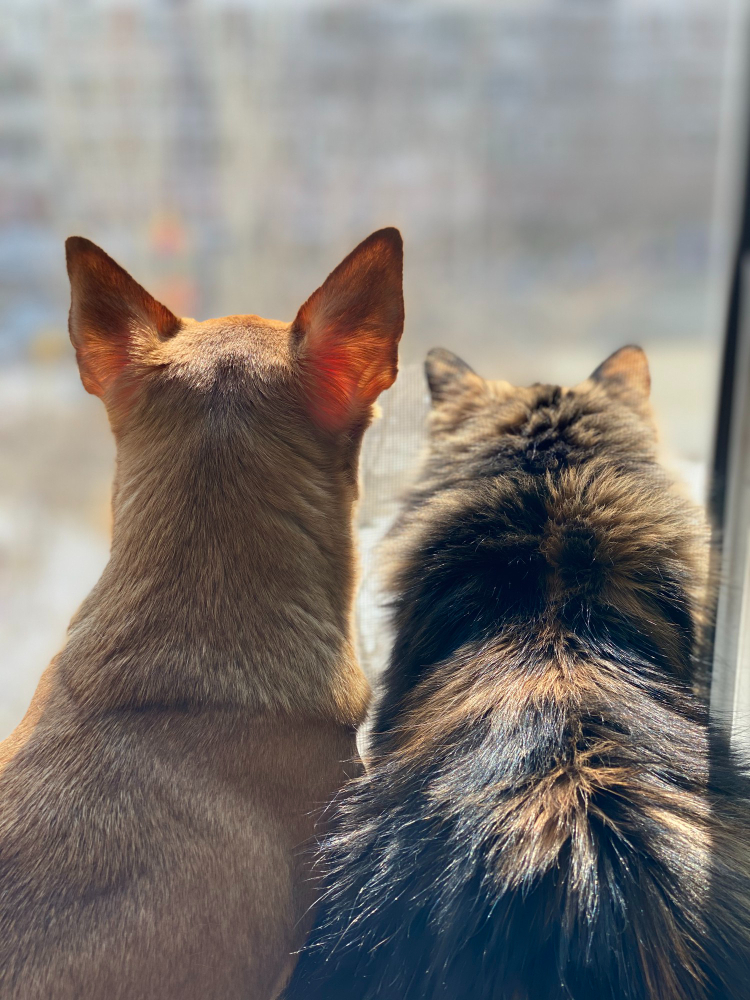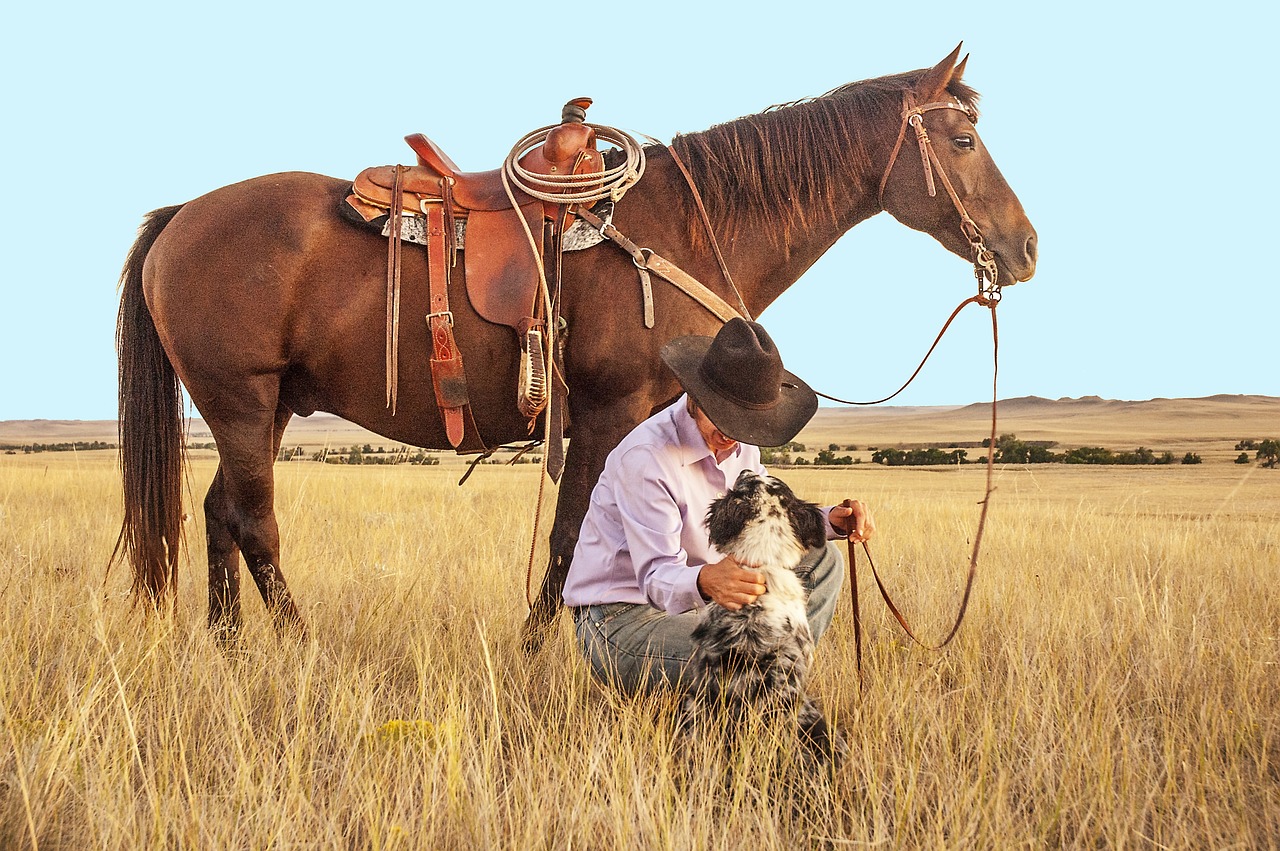Despite their differences, dogs and horses can develop strong bonds, showcasing their remarkable ability to engage in cross-species interactions. This article delves into the factors that affect dogs and horses playing together, the benefits of their companionship, and how to encourage a strong canine-equine friendship. Let’s uncover the secrets of the dog-horse connection and learn how to nurture this unique bond.
Understanding Canine and Equine Differences
Before we explore the potential for dogs and horses to play together, it is essential to recognize their key differences:
- Physical characteristics: Dogs are generally smaller and more agile, while horses are larger and stronger.
- Instincts: Canines possess predatory instincts, leading to more assertive communication, whereas equines rely on non-verbal cues due to their prey instincts.
- Behavioral characteristics: Dogs, being pack animals, tend to be more social and interactive. They may express themselves through barking, whining, or growling. Horses, on the other hand, are herd animals and communicate primarily through body language. They may show signs of discomfort or stress by tossing their heads, stamping their feet, or swishing their tails.
Understanding these differences is crucial for creating positive interactions between the two species. This knowledge will enable you to better manage their relationship and ensure a harmonious environment where both dogs and horses can thrive.
Factors Affecting Canine-Equine Interactions
The ability of dogs and horses to play together is influenced by several factors:
- Early exposure and socialization: Positive early experiences between dogs and horses can help them feel more comfortable and familiar with each other.
- Personality and temperament: Introduce dogs and horses in a way that considers their unique personalities and temperaments.
- It’s not just dogs that should be taught basic commands for a peaceful coexistence. Horses also need to be trained to be comfortable around dogs and to follow certain commands to prevent any accidents or conflicts.
- Compatibility assessment: Evaluate their compatibility and watch for signs of stress or discomfort to ensure a safe environment.
By addressing these factors, you can help to create an environment where both dogs and horses can interact safely and peacefully.
The Benefits of Canine-Equine Bond
When dogs and horses play together, they experience several advantages:
- Mental and emotional stimulation: Playing together helps prevent boredom and promotes happiness.
- Socialization: It offers a way to combat loneliness, especially for animals kept alone.
- Physical health: Interactions provide exercise, keeping both animals fit.
- Strengthened relationships: Playing together can strengthen the bond between animals and their owners.
Examples of Successful Canine-Equine Relationships
- Therapy and service animal programs: Assistance canines can support riders with disabilities during therapeutic horse riding sessions.
- Sports and recreational activities: Dogs and horses can work together in agility training, horseback riding, and other activities showcasing their coordination and teamwork.
- Farm life: Both species can keep an eye on livestock, with horses leading the stock and dogs guarding against outside dangers.
Fun Games for Dogs and Horses to Play Together
- Fetching balls or frisbees: The horse throws a ball or frisbee for the dog to retrieve, encouraging teamwork and play.
- Tag: This game involves one animal chasing the other, allowing them to exercise and have fun together.
- Hide and seek: Hide treats or toys and let dogs and horses search for them together.
- Obstacle course: Build an obstacle course that promotes cooperation and develops coordination skills through problem-solving activities and agility tasks.
Training Tips for Fostering Canine-Equine Friendships
- Use positive reinforcement: Encourage desired behaviors with treats, praise, or affection.
- Gradual introduction: Socialize pets in a calm environment, under constant supervision.
- Familiarization: Expose the animals to different smells, sounds, or objects to help them get used to each other.
- Respect boundaries: Give each animal space to feel safe and comfortable.
- Constant supervision: Always monitor your pets when they are in each other’s company to prevent potential accidents.
Challenges and Precautions in Canine-Equine Relationships
Despite the potential for strong bonds, there are challenges to consider in canine-equine relationships:
- Predator-prey dynamics: The natural instincts of both species may lead to aggression. Carefully supervise their interactions to ensure the safety of both pets.
- Health risks and zoonotic diseases: There is a possibility of diseases being transmitted between dogs and horses. Minimize risks by providing regular veterinary care, proper hygiene, and vaccinations.
By taking these precautions and maintaining attentive supervision, you can create a safe and enjoyable environment for dogs and horses to interact.
Conclusion: Building Successful Canine-Equine Friendships
Dogs and horses can indeed play together and develop a strong, playful friendship despite their differences. Fostering such a bond requires socialization, temperament assessment, training, and obedience. The benefits of canine-equine interactions extend to both animals and their owners, promoting well-being and happiness.
As a pet owner, your guidance and care are essential for cultivating a successful relationship between your dog and horse. By following the tips and suggestions provided in this article, you can help nurture a unique and lasting bond between these two incredible species.
Remember to always consult an expert before starting any activity involving dogs and horses playing together. With proper guidance and a suitable environment, your canine and equine friends can develop a long-lasting friendship.














